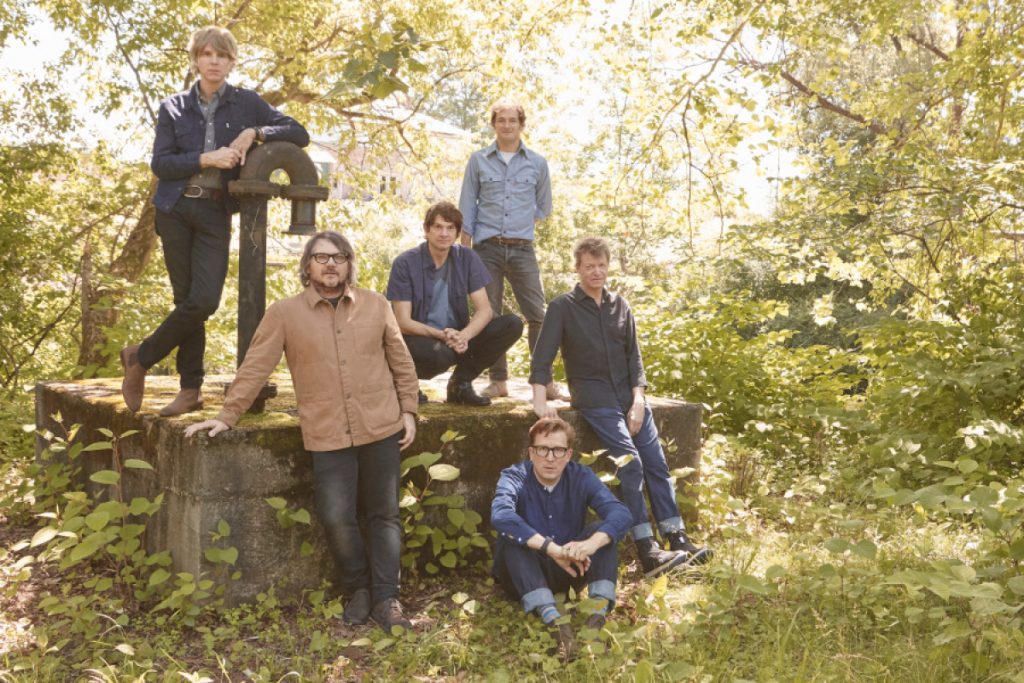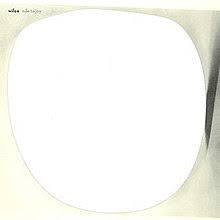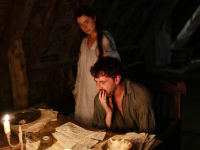
Wilco are an Alternative rock/indie/country band from Chicago that are now in their 25th year.
In 2015 they released their 10th studio album ‘Schmilco’ and that’s when I got on their bus, since then acquiring most of their albums from boot sales or cheaply from Amazon. Two recently released and related solo albums from singer/guitarist/songwriter Jeff Tweedy (‘Warm’ and ‘Warmer’) really helped cement my interest in the band. I read somewhere that the band have stated that they were really trying harder on this album, an odd statement in that it makes it sound as if they haven’t always given the creation of their art 100% effort. Yet to me this is the sound of a band happy with their place in the scheme of things, creating for their own purposes and if anyone likes it then that’s a bonus.
Partly that’s because of the slow pace of the album’s opening. There is a weathered and wintry feel to the album, and its pared down instrumentation is brilliantly assisted by the minimal electronica and off kilter instrumentation that lurks under the surface. The record touches on relationship angst and the political chaos of the times, ‘Before Us’ protesting ‘Remember when wars would end? Now when something’s dead, We try to kill it again’. It’s sombre and funereal, and as part of a quartet of opening songs that could easily flow into one from each other is too monotone a pace to grab the listener’s attention fully. Unless, that is, you’re listening on a decent system. I first listened on mp3 streamed or in the car. And this or a Bluetooth speaker simply don’t reveal the craft and layers the album has. Listening to the CD on a decent system it sounds totally different, still singularly paced but each track offers different textures and subtle shading to make it different from the others. A flat, compressed listen does not reveal this. Fittingly the end of this opening salvo is called ‘Quiet Amplifier’, you kind of need precisely the opposite to get what’s going on.
And then the pace (if not the mood) picks up. I’ve always found Tweedy Lennon-like in his delivery and ‘Everyone Hides’ sounds like a classic early 70’s Lennon lyric too. There’s more bounce in it and hence more immediate melody. It is more straightforward, there’s less weirdness under the surface, but it still has an intricate and crafted arrangement. ‘White Wooden Cross’ even has a jaunty folk pop melody floating over a bleak ballad to loss lyrically. And if ‘Citizen’ is a similar percussive plod to some of the opening numbers then at least the pace has picked up and the melody is more to the fore. ‘We We’re Lucky’ is more similar still to the earlier tracks on the album, but it’s layered and heavy enough to be more standout, and the subtle under the surface effects and licks are essential to the track’s completeness. I can’t stress enough, if you’re listening to this on a small Bluetooth speaker in front of you, you will not appreciate what’s going on. ‘We Were Lucky’ illustrates this more than anything else here.

Ode to Joy is the 11th studio album from American indie rock band Wilco
‘Love Is Everywhere (Beware)’ as a song title looks misplaced here. But its tale of escapism to a secluded utopia whilst the world in general fans its own flames fits perfectly with the feel of the album as a whole. ‘Hold Me Anyway’ echoes the sentiment, ‘High in an old dead tree, That plastic bag is me, That’s where I want to be’ is the record’s core message of peace and escape from modern woes in a nutshell. There’s also a ‘White Album’ feel to it, which is mirrored in the album’s spartan artwork. ‘An Empty Corner’ closes the album out on a downbeat. ‘Eight tiny lines of cocaine, Left on a copy machine’ is its opening salvo as a picture is painted of the aftermath of violence, broken teeth and fallen power lines being whiplashed into sparking by the wind. Only the chance of finding family in this post battle playground offering the hope of redemption and a future.
And then this delicate record is over. It pushes you to really listen to it and find your own depth in it. A casual listen is not enough. You’ll find it rewarding if you leap in, if not you may miss the point.

Author: Ian, Romford store





